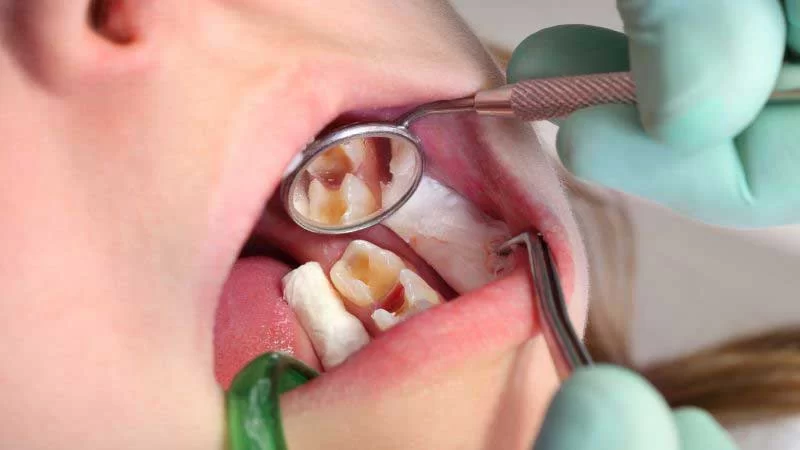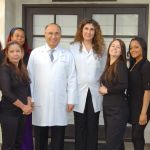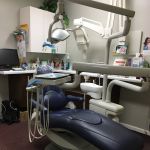
How Seniors Can Prevent Cavities with Effective Oral Hygiene Practices
As I age, I’ve come to realize just how crucial maintaining good oral hygiene is. In my younger years, I didn’t pay much attention to my teeth, but as I’ve grown older, I’ve learned that caring for my teeth is more important than ever. I’ve seen many of my friends and loved ones struggle with cavities and other dental issues in their senior years, and I don’t want that for myself. In this article, I’ll share what I’ve learned about preventing cavities in seniors and how good oral hygiene practices can help protect our smiles well into our golden years.
The Importance of Oral Hygiene for Seniors
Oral health isn’t just about having a bright, beautiful smile—it’s a key component of overall health. For seniors, the risk of cavities increases due to several factors, including a decrease in saliva production, medication side effects, and wear and tear on our teeth over time. It’s essential to keep our mouths clean and healthy to avoid tooth decay, gum disease, and other dental issues that can affect our quality of life.
Good oral hygiene can help prevent the buildup of plaque, a sticky film of bacteria that forms on our teeth. Plaque produces acids that erode tooth enamel and lead to cavities. The older we get, the more vulnerable our teeth become to this kind of damage. But with the right habits, we can keep our teeth and gums in great shape for years to come.
Simple Tips for Preventing Cavities in Seniors
After years of trial and error, I’ve discovered a few simple yet powerful ways to prevent cavities and maintain a healthy mouth:
1. Brush and Floss Regularly
One of the most fundamental steps in cavity prevention is brushing and flossing. It sounds so simple, but many seniors struggle with maintaining this routine. I find that brushing twice a day with fluoride toothpaste and flossing once a day helps keep my teeth clean and free from plaque. It’s essential to brush gently but thoroughly, especially along the gumline, to remove any food particles or bacteria that can lead to cavities.
Flossing may seem like a hassle, but it’s incredibly important for reaching areas between the teeth that a toothbrush can’t reach. Over time, I’ve noticed a big difference in my dental health since I started flossing regularly. It only takes a few minutes, but it can significantly reduce the risk of cavities.
2. Use a Mouthwash with Fluoride
In addition to brushing and flossing, I’ve found that using a fluoride mouthwash helps protect my teeth from cavities. Fluoride strengthens enamel, making it more resistant to decay. Since dry mouth can be an issue for many seniors, using a fluoride mouthwash can help restore some moisture to the mouth and prevent further damage. It’s an extra step that’s worth adding to my daily routine.
3. Stay Hydrated
Dry mouth is a common problem for seniors, especially those on medications that reduce saliva production. Saliva is essential for neutralizing acids in the mouth and washing away food particles. Without enough saliva, the risk of cavities and gum disease increases. I make sure to drink plenty of water throughout the day to stay hydrated and help keep my mouth moist. Drinking water after meals also helps rinse away food debris.
4. Watch Your Diet
Our diet plays a significant role in our oral health, and I’ve become more mindful of what I eat as I’ve gotten older. Sugary and acidic foods can erode enamel and contribute to cavity formation. Instead, I focus on eating a balanced diet with plenty of fruits, vegetables, and calcium-rich foods like cheese and yogurt. These foods help strengthen my teeth and keep them healthy. I also try to limit sugary snacks and beverages, especially between meals.
5. Visit the Dentist Regularly
Even though I take care of my teeth at home, regular visits to the dentist are essential for catching any early signs of cavities or other issues. I make sure to see my dentist at least once a year for a thorough cleaning and check-up. During my visits, the dentist can remove plaque and tartar buildup that I might have missed, and they can spot any potential problems before they become serious. It’s always better to catch cavities early, as they can be treated more easily before they worsen.
Real Stories: How Good Oral Hygiene Helped Seniors Prevent Cavities
I know it’s easy to think that cavities are just a part of getting older, but I’ve seen firsthand how taking care of your teeth can make a big difference. One of my close friends, Mary, was dealing with severe tooth decay when she hit her 70s. Her teeth had suffered from years of neglect, and she was facing the prospect of dentures. However, after making a conscious effort to improve her oral hygiene—brushing and flossing regularly, using fluoride mouthwash, and cutting back on sugary foods—Mary was able to keep her teeth and gums healthy. She even avoided getting dentures and continues to enjoy a full set of natural teeth into her 80s!
Another friend, John, struggled with dry mouth due to his medications. He made sure to drink more water throughout the day and used a special mouthwash recommended by his dentist. This helped alleviate his dry mouth, and he was able to reduce the frequency of cavities he had been getting in his senior years. Now, he’s pain-free and still smiling with confidence.
These real stories remind me that it’s never too late to take action and make improvements to our oral health. No matter how old we are, we can all take steps to prevent cavities and enjoy a healthy, happy smile.
Conclusion: Preventing Cavities Is Within Your Reach
Preventing cavities in seniors isn’t as difficult as it may seem. With a few simple steps—brushing and flossing regularly, staying hydrated, eating a balanced diet, and visiting the dentist—you can protect your teeth and gums for years to come. By staying proactive and consistent with your oral hygiene, you can enjoy a lifetime of healthy teeth and a smile that reflects your well-being.
For those of us in our golden years, it’s important to remember that we don’t have to let age dictate our dental health. A few changes to our routine can go a long way in preventing cavities and ensuring that we continue to enjoy our teeth as we age.







 Leardi Family Dentistry4.0 (135 review)
Leardi Family Dentistry4.0 (135 review) Rayhan & Marvizi, DDS5.0 (104 review)
Rayhan & Marvizi, DDS5.0 (104 review) Dr. Melanie Williamson, DMD5.0 (5 review)
Dr. Melanie Williamson, DMD5.0 (5 review) Charles A. Messa Jr. DDS4.0 (14 review)
Charles A. Messa Jr. DDS4.0 (14 review) Dr. William G. Gardner, DDS4.0 (12 review)
Dr. William G. Gardner, DDS4.0 (12 review) Setter Periodontics and Dental Implants5.0 (34 review)
Setter Periodontics and Dental Implants5.0 (34 review) The Importance of Oral Health Education During Pregnancy for a Healthy Pregnancy
The Importance of Oral Health Education During Pregnancy for a Healthy Pregnancy Best Tips for Brushing Your Teeth Properly for Healthy Gums: Essential Techniques for Oral Health
Best Tips for Brushing Your Teeth Properly for Healthy Gums: Essential Techniques for Oral Health Why Skipping Dental Checkups Can Lead to Bigger Oral Health Problems
Why Skipping Dental Checkups Can Lead to Bigger Oral Health Problems Advantages of Porcelain Dental Restorations
Advantages of Porcelain Dental Restorations How Can Diabetes Cause Tooth and Gum Problems? Preventing and Managing Oral Health Issues
How Can Diabetes Cause Tooth and Gum Problems? Preventing and Managing Oral Health Issues Healthy Habits for Promoting Good Oral Health and Hygiene: Tips for a Healthy Smile
Healthy Habits for Promoting Good Oral Health and Hygiene: Tips for a Healthy Smile